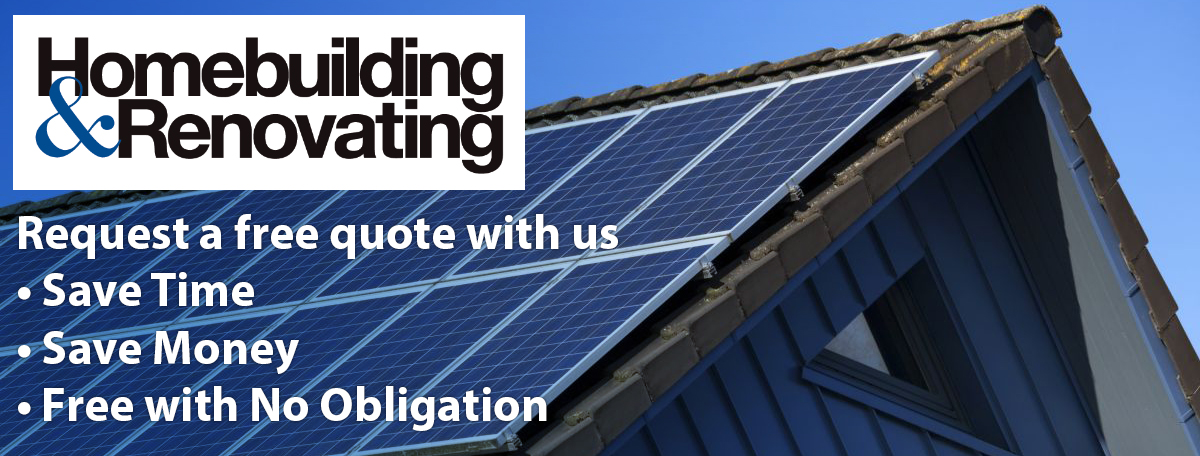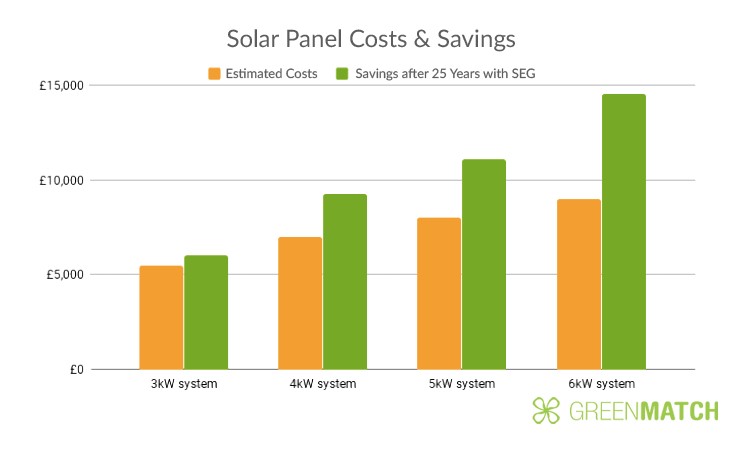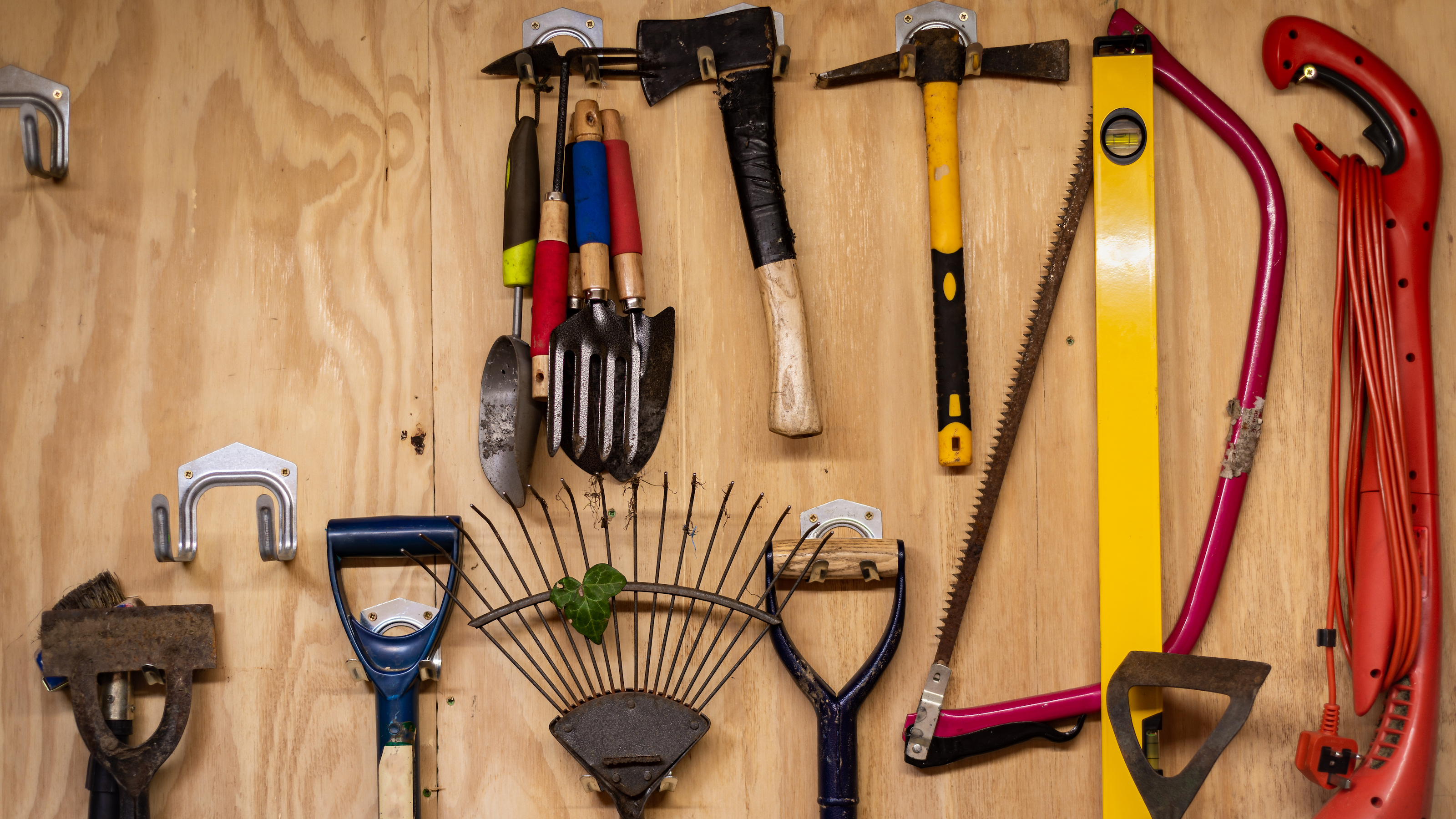Solar panels cost: request free quotes and compare prices
Are solar panels a good investment for your home? From the types available to whether the cost is worth the reward, take a look at our essential guide for beginners

Save Time
Get up to 4 quotes from our selected suppliers by filling in just 1 form
Save Money
Save money by comparing quotes and choosing the most competitive offer
Free and No Obligation
Our service is 100% free and with no obligation
Request free quotes and compare solar panel prices with Homebuilding & Renovating and our verified partners.
Fill in our form in under 1 minute to start the process. Here's how it works:
- Simply tell us a bit about your home, what your budget is, and leave some contact details.
- We'll match your requirements with the services and prices that our partners offer.
- Only the suppliers who match your requirements will reach out to you.
Request free quotes
Solar panels: what are the costs?
How much do solar panels cost?
On a typical 4kWp on-roof solar PV array we would expect to see between 12 and 16 panels (depending on the output of the individual panel) and the fully installed cost would be somewhere between £5,000 to £8,000 depending on the quality of the panels and the complexity of the site.
If the panels are integrated into the roof or are made to mimic the tiles or slates then the fully installed costs of a 4kW system would be expected to be around £10,000 to £15,000.
Copy to explain the following table.
| System size | Estimated costs | Number of panels | Roof space | Annual electricity bill savings | Savings after 25 years with SEG |
|---|---|---|---|---|---|
| 3kW panel system | £5,000 - £6,000 | 12 | 22 m² | £160 | £5,993 |
| 4kW panel system | £6,000 - £8,000 | 16 | 29 m² | £270 | £9,240 |
| 5kW panel system | £7,000 - £9,000 | 20 | 32 m² | £320 | £11,088 |
| 6kW panel system | £8,000 - £10,000 | 24 | 43 m² | £430 | £14,533 |
Solar thermal systems will usually require a new cylinder as you need two coils in it, one for the solar panel circulation and the second for the back up heater such as a boiler (gas, oil or biomass), or a heat pump.
Depending on the roof access and the cylinder location the cost to install a solar thermal system could be between £5,000 and £8,000.
Get the Homebuilding & Renovating Newsletter
Bring your dream home to life with expert advice, how to guides and design inspiration. Sign up for our newsletter and get two free tickets to a Homebuilding & Renovating Show near you.
Do solar panels save you money?
How much do you save with solar panels?
Lorem ipsum dolor sit amet, consectetur adipiscing elit. Duis facilisis sapien quis lectus consectetur, a interdum ipsum gravida.
Donec congue luctus finibus. Cras facilisis, felis eu dictum sodales, ipsum eros fringilla nisi, at gravida urna velit sed lectus.

Vivamus sit amet nunc mollis, facilisis ante vel, interdum sapien. Sed placerat fermentum tellus, et ultrices lorem tempus sed.

How long do solar panels take to pay for themselves?
Morbi ut laoreet nisl. Nulla quis lacus magna. Cras ipsum lorem, laoreet a nunc et, commodo dignissim libero.
Donec aliquet nibh ut mi molestie, ut fringilla massa sagittis. Aliquam volutpat eros id libero commodo, nec tempor eros iaculis. Donec non ullamcorper nibh, a aliquam ligula.
Are there grants available for solar panels?
The tariffs for exported solar energy can vary from supplier to supplier, but a good rate is 4-6p/kWh.
SEG generators that are seeking further guidance, you can read this guide on Ofgem's website.
Solar PV used to have the benefit of a very generous incentive payment through the Feed In Tariff (FiT) scheme but that has now ended.
There are, however, buy back rates available from the energy suppliers where they will pay you for your excess generation. This payment is not fixed or prescribed so it is best to shop around for the best deal.
Solar thermal panels currently benefit from incentive payments under the Renewable Heat Incentive but this scheme is due to end in March 2022 and we are currently unsure what it will be replaced with, if anything at all. The proposal is to create a one-off payment scheme under what is being called the Clean Heat Grant; however, this is currently under consultation.
Under the Green Homes Grant, solar thermal panels are included as a primary measure, but PV panels have specifically been excluded. This scheme is currently planned to operate until March 2022 also.
Solar panels installation
How are solar panels installed?
Solar panels are installed either on the roof above the roof cladding, integrated into the roof either mimicking the cladding or as panels that are flush with the cladding.
Roof hooks are fixed to the roof trusses or rafters and aluminium rails are then fixed horizontally to the hooks. The panels are then bolted to the rails and (with PV) all the wires fed back to a device known as an inverter, which converts the generated energy into useable electricity for use in the home.
Solar thermal panels are also bolted to roof hooks but will have pipes connecting to a cylinder in the home.
How many solar panels are needed to run a house?
Solar PV panels are only around 20% efficient, so you would expect to see between 12 to 16 panels on a typical 4kW system.
Solar thermal panels are actually around 80% efficient so you would expect to fit one flat panel (or 10 tubes) for every 100 to 120 litres of hot water storage capacity. Therefore if you have a 240 litre cylinder you would have two panels but a 300 litre cylinder may require three panels or 30 tubes.
While the effectiveness of solar panels is weather dependent, there are ways to optimise their efficiency.
The best fixed position for a solar panel in the UK is to face south on a pitch of around 35°. Any deviation from this will have a negative impact on the annual energy yield.
The roof must be structurally sound enough to take not only the weight of the panels, but also the wind lift that may be caused by wind getting behind them.
With PV panels, it is crucial to avoid any shading – even where one panel is in the shade, such as behind a chimney stack. This could cause the whole array to stop generating energy.
If shading is a risk then special design considerations need to be applied to mitigate or limit the reduction in generation.
How solar panels work
How do solar panels work?
Solar PV panels have very thin silicone cells that are doped in chemicals to make them sensitive to light.
The light causes a reaction between the cells and an electric current is produced. The brighter the sunlight the greater the energy generation.
Solar thermal panels have a dark coated metal sheet in them that has copper pipe attached to it with water running through it.
There is insulation behind the pipes and therefore any heat that is absorbed by the dark panel is then reabsorbed by the fluid in the pipe and moved to a hot water cylinder.
Are solar panels worth it
Are solar panels worth it in UK?
In the age of the FiT, PV panels were an exceptionally good investment. Not only did you get paid for the generation but you could use it too, therefore saving on buying in the electricity.
Now that the FiT has ended it needs to be calculated how much energy you will generate annually, what percentage of that energy will be used in the home, what the cost is of energy that is being displaced by the PV generation and therefore what the potential payback would be.
For example if you have natural gas going to your house and the cost of electricity is 15p/kWh and the cost of gas is 5p/kWh then if you use your generation to power your fridge and your washing machine you would offset 15p per kWh used. If, however, you redirect your generation to the hot water cylinder then you are actually only saving 5p per kWh.

David is a renewables and ventilation installer, with over 35 years experience, and is a long-standing contributor to Homebuilding and Renovating magazine. He is a member of the Gas Safe Register, has a Masters degree in Sustainable Architecture, and is an authority in sustainable building and energy efficiency, with extensive knowledge in building fabrics, heat recovery ventilation, renewables, and also conventional heating systems. He is also a speaker at the Homebuilding & Renovating Show.
Passionate about healthy, efficient homes, he is director of Heat and Energy Ltd. He works with architects, builders, self builders and renovators, and designs and project manages the installation of ventilation and heating systems to achieve the most energy efficient and cost effective outcome for every home.

